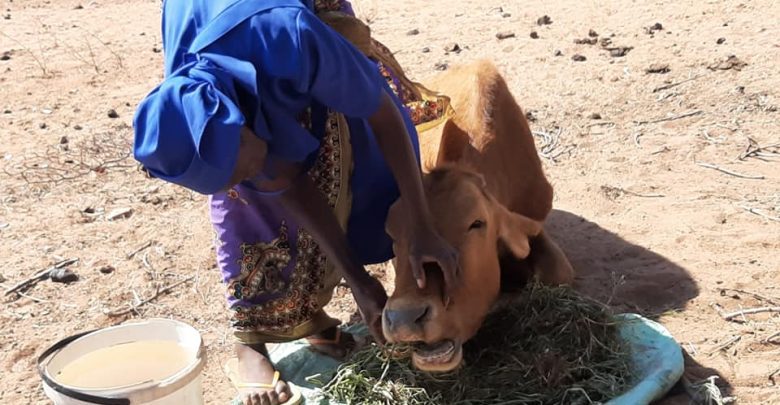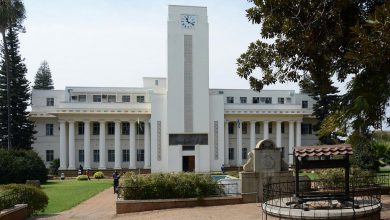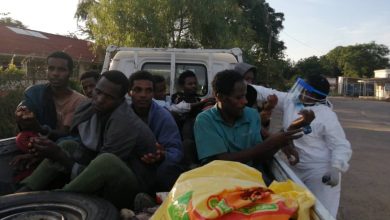Byo’s peri-urban communities fear for their cattle amid El Niño drought

With the consequences of the El Niño drought deepening, Bulawayo’s peri-urban districts appear to have become forgotten places, with residents battling to provide food and water for their cattle.
El Niño is a natural climate phenomena in which surface waters in the central and eastern Pacific become exceptionally warm, creating changes in global weather patterns.
It is projected to affect agricultural yields and production in Zimbabwe during the 2023/24 farming season.
In this light, the government and non-governmental organisations (NGOs) are providing support to disadvantaged groups and communities, with a particular emphasis on rural people whose livelihoods are mostly based on farming.
The situation is however different for peri-urban communities in Bulawayo, where locals are saddened about the possibility of intense hunger and severe loss of livestock.
CITE visited the outskirts of Pumula, Ward 17, which consist of Methodist Village, St Peter’s Village and Mazwi Village, where the villagers expressed grave concern over the welfare of their livestock.
The locals said their community lacks adequate sources of water, hence both the villagers and the livestock share water from the few community boreholes dotted around the area.
Sinanzeni Mabaso, a community leader from Methodist village, narrated how their livestock have no food and water, describing it as a worrying development that may result in death.
“Our livestock are on the verge of death. They are already getting lean and the pregnant ones are becoming weak. The grass is dry. We did not receive enough rain and the heat is too much. This is a sign that we may lose all our livestock. Our hope is the Lord will smile on us and we get rains. Even if the grass is dry but if the animals get water, it would be better,” Mabaso said.
Mabaso claimed contaminated dust particles from a mine close to their village was affecting their livestock, which is why they needed more water.
“There is a quarry mine closeby which produces a lot of dust when carrying out its operations. The dust settles on trees which serve as food for some of our livestock. Our goats eat leaves from Isinga trees, which would be covered in dust. The same way people are affected by dust which causes tuberculosis, is the same way our animals may be affected. We hope to get boreholes or more water sources for the animals,” Mabaso said.
The community leader said while the government has provided them with farming inputs in previous years, they have received none this year due to the drought.
“Maybe our community was forgotten or maybe they had other priority areas. We hardly get any help from the non-governmental sector either. If they could help us, we would be grateful,’ she said.
St Peter’s Village community leader, Juliet Bethule, echoed similar challenges, citing unavailability of adequate water sources and pastures for their livestock as their greatest nightmare.
“Our main challenge is lack of water. We would appreciate it if various organisations would drill boreholes for us. Due to this drought, people are prioritising human life over livestock,” Bethule said.
“Usually at this time of the year the grass is green, but this year the situation is different. We are only in March, we don’t know how we will make it to September or October when we may get another rainy season. It will be a long wait.”
Bethule said the toll of drought on their livestock, especially cattle and goats, was affecting their economic well-being.
“We can’t even sell Amasi. There is no milk from both goats and cattle because they do not have enough food. We were selling these to make ends meet but now there is nothing. That is a dent on our income.”
Ward 17 Councillor Sikhululekile Moyo, acknowledged the challenges faced by the villagers, citing the area has not received any assistance towards addressing drought effects.
“The only help that is there now is from DREAMS, which is helping young girls at Robert Sinyoka. No help has been rendered towards addressing drought. We recently held a meeting with the village development committees, and they were wailing over hunger and loss of livestock. What we will do now is to work together with the Member of Parliament for the Constituency to try and secure assistance for these communities,” Cllr Moyo said.
Thulani Moyo, Finance and Logistics Manager for African Food Revolution, believes that NGOs must incorporate urban populations in their programming to address challenges for the urban and peri-urban communities.
“People don’t believe in urban poverty, so they give more focus to rural areas, which is a huge problem, especially looking at the current El-Nino. Most NGOs focus on rural communities,” Moyo said.
“Some may argue that there are various challenges tied to operating in urban and peri-urban areas such as the difficulties of mobilising people for programmes. This is because unlike in rural areas, there are a lot of off-farm activities such as vending and other activities that people can do to make ends meet. They may not have time to attend programmes that may be set up for them.”
He added that most NGOs have offices in urban areas but carry out their activities in rural areas, where they have no offices.
“They could include peri-urban and urban areas as low hanging fruits where they can try and assist people to fight the effects of climate change,” he said.
Moyo said their organisation is running an Urban Futures Project funded by HIVOs in partnership with Botnar Foundation in Bulawayo, which seeks to render assistance in this regard.
“The programme runs under the theme: A climate resilient, smart, inclusive and safe city with sustainable, youth-led indigenous and evolving modern food systems, where citizens are more conscious of their actions,” Moyo said.
“As African Food Revolution with our partners BVTA, Greenhut and UVTF acknowledge the existence of urban poverty and impacts of climate change and its effects, that is, droughts on urban and peri urban farming. The UF project seeks to address these issues through a variety of mechanisms such as capacity building, incentives to youth farmers and advocacy along the food systems value chain.
“The programme will also tackle issues to deal with water management challenges that the city faces for sustainable food systems. Working with multiple stakeholders, the program activities seek to build a strong vibrant network of young people who can address issues the city faces.”






